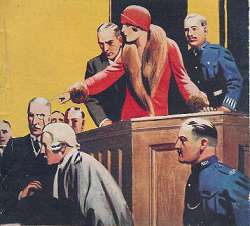 Libyans militants, traditionally a strong but low-profile group, are advancing in an Egyptian and Saudi dominated Al Qaeda, A Los Angeles Times report said on Monday. Libyans militants, traditionally a strong but low-profile group, are advancing in an Egyptian and Saudi dominated Al Qaeda, A Los Angeles Times report said on Monday.
Libyans have become the second-biggest foreign insurgent contingent in Iraq after the Saudis, according to a US military report based on seized documents. The study found that Libyans constituted 18 percent of the foreign fighters in Iraq, second only to Saudis at 41 percent. Previous studies estimated a much smaller percentage of Libyans, suggesting that the ethnic composition has shifted over time, the report says. Libyan militants In Iraq have proved resilient and adept at moving fighters into combat, the LA times report said.
The rise of Libyan militants was also highlighted by the death of Abu Laith Al-Libi, a Libyan Al Qaeda chief, who oversaw a paramilitary campaign in Afghanistan and was a top figure in an Internet propaganda barrage. He was killed last week in a missile strike on a hide-out in Pakistan.
Al Qaedas leaders in Pakistan have rewarded the Libyans with increased power and media presence, the report said.
There is a rising leadership cadre of Libyans in Al Qaeda, J Vahid Brown, an analyst at the Combating Terrorism Center at West Point, told the LA Times. Egyptians have really dominated strategic and military operations. The Egyptians are good at keeping control of that, because many of them have military training. Now you have Libyan faces appearing in videos.
Al Qaedas chief, Osama Bin Laden, is a Saudi, and his deputy, Ayman Zawahiri, is Egyptian. Their dominance has made Egyptians, especially, and Gulf Arabs the organisations most powerful players, the report said.
The network, it said, had an ethnic pecking order of sorts. In the late 1990s, Libyans were quiet but influential. They played the role of mentors for fellow North Africans, particularly Moroccans who were seen as little foot soldiers, according to a Spanish law enforcement chief.
The Libyan Islamic Fighting Group, which has waged a longtime campaign against Muammar Qadaffys regime, ran a camp in Afghanistan that groomed the founders of the Moroccan Islamic Combatant Group, according to Spanish court documents. Al Libi became a revered figure among the Moroccans.
A captured Moroccan extremist told interrogators about meetings in Turkey in 1998 at which Libyans provided expertise about communications and organising cells, according to Italian court documents.
Post-September 11, 2001, the Egyptians have tended to run an external operations wing that targeted the West, the report said, and Libyans had concentrated on paramilitary combat and attacks on Western and local targets in Pakistan, the report said.
A Libyan named Abu Faraj Farj, who was based in the Bajaur tribal area, allegedly masterminded two assassination attempts in 2003 against Pakistani President Pervez Musharraf, said Singapore-based terrorism expert Rohan Gunaratna. With Bin Laden and Zawahiri isolated to avoid detection, Farj was among a select few who met with the two fugitives and transmitted messages and directives to commanders in Waziristan, US intelligence officials told the LA Times. Farj was captured in 2005 in Pakistan and is being held at the US military prison at Guantanamo Bay, Cuba. It is believed he was betrayed by a Central Asian faction competing with Arab leaders for turf and allegiances in the tribal areas, said Brown, the West Point analyst.
In Iraq, Libyan strategists tried to smooth the difficult long-distance relationship with Abu Musab Zarqawi, the Jordanian whose campaign of bombings and beheadings in Iraq came to be seen as counterproductive, the report said. After the 2006 slaying of Zarqawi in a US strike, the number of foreign fighters entering Iraq declined and his group, Al Qaeda in Iraq, lost support among Iraqis.
The West Point study said most Libyan in Iraq were from the towns of Darnah and Benghazi, traditional hotbeds of extremism, and made their way to Iraq through Egypt and Syria. In a video released in November by As Sahab, the media wing of Al Qaeda, Al Libi extols fellow militants as the heirs of those whose blood was spilled in the mountains of Darnah and the streets of Benghazi. The video was significant, the report said, because Al Libi used it to announce the formal incorporation of the Libyan group into Al Qaedas anti-Western struggle. Al Libis fall confirms the significance of his rise. |
 Morocco sentenced notorious terrorist Saad al-Hussaini to 15 years in prison on Thursday (February 26th). The Sale court imposed lesser sentences on 17 co-defendants. Nicknamed The Chemist, al-Hussaini is believed to have fashioned the bombs that killed 45 people in Casablanca in 2003. Al-Husseini is also reputed to be the founding leader of the Moroccan Islamic Combatant Group (GICM). According to police, his terror network recruited many would-be suicide bombers to Iraq. Spanish authorities also suspect him of involvement in the 2004 Madrid blasts.
Morocco sentenced notorious terrorist Saad al-Hussaini to 15 years in prison on Thursday (February 26th). The Sale court imposed lesser sentences on 17 co-defendants. Nicknamed The Chemist, al-Hussaini is believed to have fashioned the bombs that killed 45 people in Casablanca in 2003. Al-Husseini is also reputed to be the founding leader of the Moroccan Islamic Combatant Group (GICM). According to police, his terror network recruited many would-be suicide bombers to Iraq. Spanish authorities also suspect him of involvement in the 2004 Madrid blasts. 
 Italian police have arrested a Muslim cleric for extradition to his native Morocco to face terrorism charges linked to suicide bombings in Casablanca in 2003. Police said in a statement that
Italian police have arrested a Muslim cleric for extradition to his native Morocco to face terrorism charges linked to suicide bombings in Casablanca in 2003. Police said in a statement that  Libyans militants, traditionally a strong but low-profile group, are advancing in an Egyptian and Saudi dominated Al Qaeda, A Los Angeles Times report said on Monday.
Libyans militants, traditionally a strong but low-profile group, are advancing in an Egyptian and Saudi dominated Al Qaeda, A Los Angeles Times report said on Monday.  Casablanca, 26 April (AKI) - Moroccan police believe a suspected mastermind of the deadly May 2003 Casablanca bombings who they arrested last month - 44-year-old Moroccan national
Casablanca, 26 April (AKI) - Moroccan police believe a suspected mastermind of the deadly May 2003 Casablanca bombings who they arrested last month - 44-year-old Moroccan national  Morocco's rumbling "war on terror" faces an important public test tomorrow in a mass trial of extreme Islamists accused of planning the violent overthrow of the most liberal regime in the Maghreb. Fifty members of the
Morocco's rumbling "war on terror" faces an important public test tomorrow in a mass trial of extreme Islamists accused of planning the violent overthrow of the most liberal regime in the Maghreb. Fifty members of the